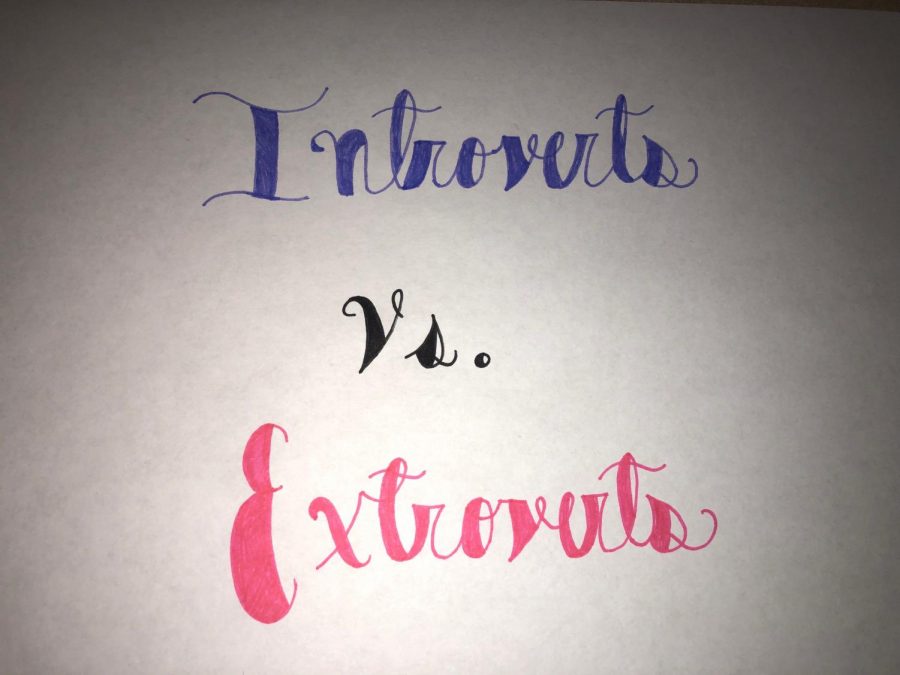Exploring the difference between introverts and extroverts
February 6, 2019
In this world, there are many people who can be shy and quiet, outgoing and loud, or a mixture of both. A girl who sits in class and doesn’t like to speak up, but is super outgoing around the people she’s close or familiar with. A boy who is always loud and boastful in school, but when they get home they aren’t as outgoing. And then there are people who are just overall sociable or reserved. It all differentiates with the person and the environment they live in. In school, most students are required to take a personality test to determine whether or not they’re an extrovert, introvert or an ambivert – a mixture of both.
Introverts
Around 16 to 50 percent of people – less than half of the world’s population – are introverts.
“I’m an extrovert and my work ethic is awful. Introverts always seem to have everything together,” says SFHS sophomore Jansen Harris.
Research shows that introverts notice more emotional reactions and can decipher emotions quicker than others. They’re very observant and are known to have a great work ethic because they enjoy keeping to themselves.
“We are deep thinkers, and are more prone to doing things on our own,” says junior Sarah McChesney. “We’re able to solve problems without the need of other people.”
However, while all these factors give an advantage to introverts, keeping to themselves can cause social problems. Making friends and being able to speak up without being nervous is a good quality for a person to have overall because it gives them more chances to do things they like. Focusing only on school and not pushing themselves out of their comfort zone makes introverts less likely to have good social skills.
Extroverts
Research shows that people who identify as extroverts are more likely to be able to speak up about situations they believe in and not be afraid of doing so. Social skills are an important life factor that everyone needs in order to make strong friendships and get more opportunities. While introverts are known to be studious and observational, they can be known to be antisocial, while extroverts are able to talk to people easier.
“Most introverts can be seen to use their introversion as an excuse to be antisocial, but in the real world, you do need friends,” claims McChesney. “Being social and a people person is very important because it can get you to a lot of different places.”
However, while extroverts have many strengths, they also have weaknesses. Talking too much can cause disruptions and stop others from speaking up as well. It’s more likely for extroverts to get in trouble for speaking too much or too loudly in class, at work, or any other occasion.
“Extroverts definitely have weaknesses,” says Harris. “I’m loud and talkative when I shouldn’t be. Some extroverts have no sense of barriers but everyone needs to know that.”
While extroverts and introverts have their differences, everyone always has a different way of communicating and expressing themselves. People shouldn’t be identified by a certain title, but by the person they are. Introverts and extroverts alike can all have incredible opportunities in life and make a great impact on different genres of life.





